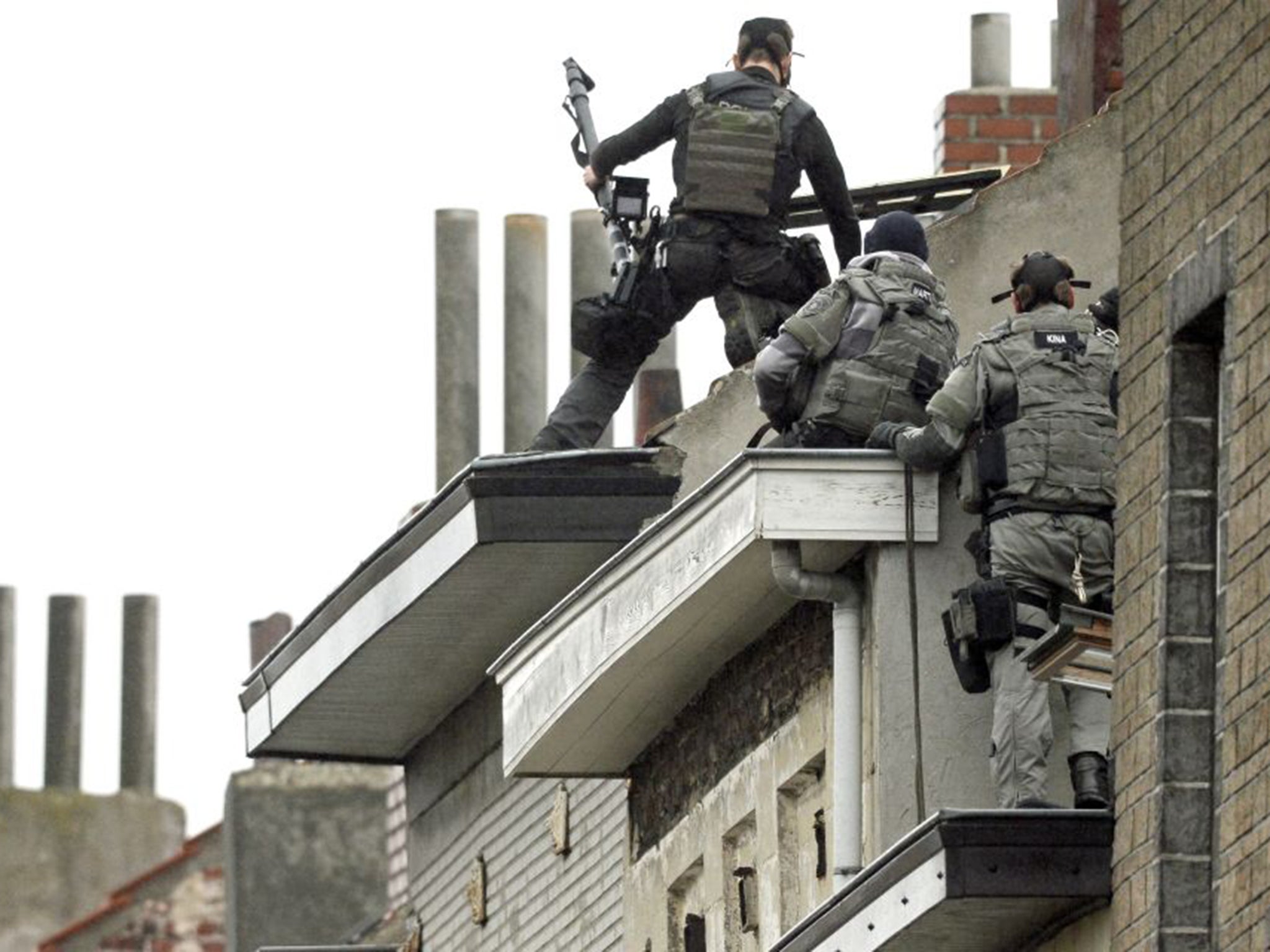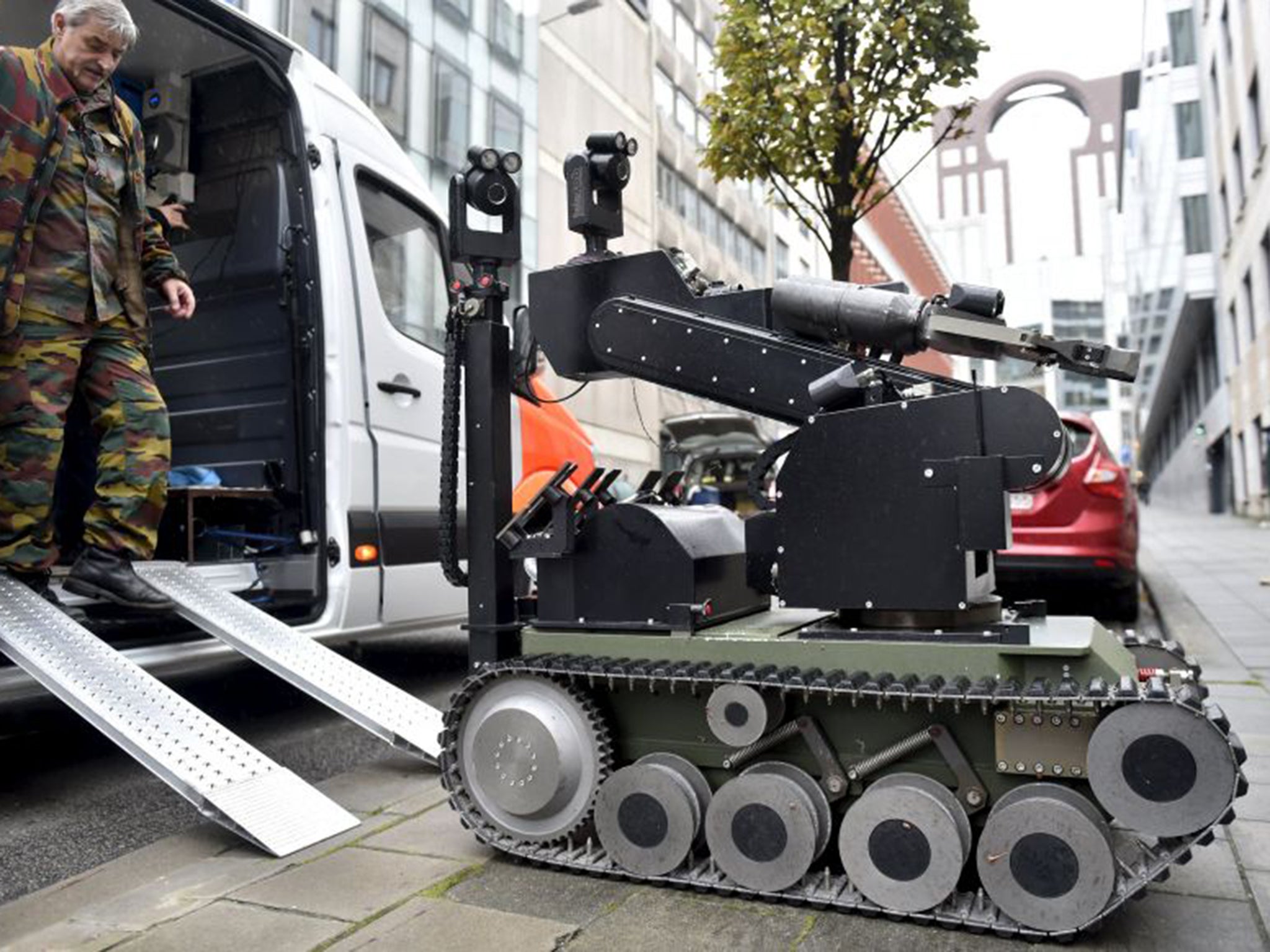Paris attacks: Why Belgium is at the heart of a destructive wave of terror in Europe
The nation's authorities realise that complacency towards extremism has allowed fundamentalist influences to fester

Your support helps us to tell the story
From reproductive rights to climate change to Big Tech, The Independent is on the ground when the story is developing. Whether it's investigating the financials of Elon Musk's pro-Trump PAC or producing our latest documentary, 'The A Word', which shines a light on the American women fighting for reproductive rights, we know how important it is to parse out the facts from the messaging.
At such a critical moment in US history, we need reporters on the ground. Your donation allows us to keep sending journalists to speak to both sides of the story.
The Independent is trusted by Americans across the entire political spectrum. And unlike many other quality news outlets, we choose not to lock Americans out of our reporting and analysis with paywalls. We believe quality journalism should be available to everyone, paid for by those who can afford it.
Your support makes all the difference.As a modest, if prosperous nation of just 11 million, Belgium rarely makes news headlines, yet today it has the unenviable distinction of being Europe’s Jihadist hothouse.
After the Paris attacks, police quickly traced the terrorists to Brussels, raiding addresses in the Molenbeek district and arresting seven suspects. It was in the grimy, run-down, neighbourhood that investigators believe the Paris plot was hatched by Abdelhamid Abaaoud, the Belgian-born son of an immigrant shopkeeper from Morocco.
Abaaoud is only part of a web of Belgium-based foot soldiers, whose exploits have left a trail of death across Europe. And beyond: around 500 young Belgians have gone to Syria to fight for Jihadist groups like Isis – per capita, no other European country has sent more foreign fighters.
Why is Belgium at the heart of Europe’s most destructive wave of terrorism in a generation? There is no single explanation, but rather a number of ingredients, from post-war immigration from north Africa, hate preachers, ghettos, poverty, and marginalision. There is also a belated realisation by the Belgian authorities that complacency towards extremism has allowed the pernicious Islamic influences to fester.
Islamist extremism has a long history in Belgium. While there have been few attacks on Belgian soil, there has been significant involvement in atrocities elsewhere. There are links to the murder of the Afghan anti-Taliban fighter Ahmed Shah Masoud – just before the September 2001 attacks in the US – and the Groupe Islamique Marocain Combattant (GICM), which had a major role in the 2004 Madrid train bombings. In 2005, Muslim convert Muriel Degauque, became the first known female Western suicide bomber, when she blew herself up in Iraq.
Some of the problems are thought to have deeper roots, including a 1970s decision to allow Saudi Arabia to send preachers with fundamentalist, Salafist teachings to Moroccan immigrants. The Great Mosque of Brussels is still owned by the Saudi royal family. However, it was the Syrian civil war that gave the jihadists their recent fillip. Belgium’s chief police commissioner Catherine de Bolle says that of 474 Belgians linked with the Syria conflict, about 130 have returned, 77 have died in the conflict, and more than 200 are still over there. Intelligence officials say that Syria – in particular, the ultra-violent ideology of Isis – represents a paradigm shift from seeking a regional caliphate to global Jihad.
The Belgian connection was laid bare in the recent trial in Antwerp of Fouad Belkacem, the leader of the radical group Sharia4Belgium, which claimed to be an Islamic information network, but was actively recruiting fighters for Syria.
Mr Belkacem, a 32-year-old Islamic radical, was accused by prosecutors of belonging to a terrorist group and brainwashing young people. In February, he was sentenced to 12 years in prison. It was the largest trial of its kind in the country: 44 other members of Sharia4Belgium were given sentences ranging between three and 12 years, although most of them in absentia, as they were in Syria.

The trial revealed how sophisticated the underground Jihadist pipeline had become. Although Belgian security services have infiltrated mosques more effectively in past decade – in part, after discovering a Belgian connection to the 2005 Madrid bombings – Sharia4Belgium and others have found ways to evade surveillance by using internet chat rooms and social media.
Almost all the trails linking Belgium to terrorism find their way to Molenbeek, the deprived Brussels commune. Belgian Prime Minister Charles Michel, who has promised a crackdown on extremism in the country, says there is a “huge problem” in Molenbeek, and has suggested closing some of the commune’s 22 mosques.
The situation is not helped by a fractured law enforcement – the Brussels region has 19 communes and operationally independent police zones – and a shortage of Arabic speakers in the Belgian intelligence services.
Bilal Benyaich from the Itinera Institute, a Brussels-based think tank, says Molenbeek is a melting pot of malign elements. “You have big Muslim communities boxed into tight housing in poor neighbourhoods,” he says.
Mr Benyaich says that many young Muslims feel marginalised from mainstream Belgian life. “This real or perceived sense of exclusion is combined with extreme Islam,” he says. “All these problems come together in a complex process of indoctrination and alienation.”
Join our commenting forum
Join thought-provoking conversations, follow other Independent readers and see their replies
Comments